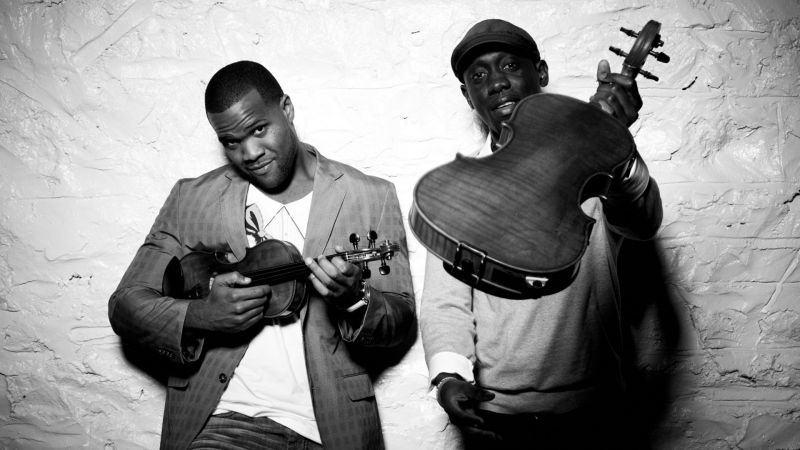"The way the name 'Black Violin' came about is because the first day of class in college, I was studying with Chauncie Patterson. I [was ready] to play the violin for him and he's like, 'Nah, nah, nah, put that away, I want to give you this tape.' And he gives me this tape. And I listen to it and it's this violinist who sounds like he's on fire. I never heard a violin with soul before. And that's what it felt like. And I listened to this album every day my entire freshman year and I sent it to Wil, and he listened to it. The violinist's name was Stuff Smith, a black violin player. He lived in the early 1900's, and this was the last album he had written and recorded before he died. It changed our entire perception of what the violin can do. And the name of that album was 'Black Violin.'"
– Kevin Sylvester
Why the Violin
"I started in the fifth grade and my mom made me do it. I was kind of hanging with the wrong crowd and she wanted to see if she [could] steer me in the right direction. So I went to a local Saturday music program. My mom's a single mommma, in the 'hood, and she put me in this program and it kind of stuck. I went to a performing arts middle school, and then met this brother, and the rest is history."
– Kevin Sylvester
Why the Viola
"I wanted to play the saxophone. The reason why is because I used to beat on the table at lunch time in middle school and the security guard used to get really upset at me, telling me, 'Listen, stop doing that or else I'll send you to detention.' And obviously I kept doing it, but he told me a quick story about how he played the saxophone, and he used to play gigs on the weekend, so I thought to myself, 'Okay, I'll sign up for band and play the saxophone and make some money on the weekends.' And I signed up for band and they put me in the wrong class. True story."
And so for the whole summer, two, three weeks, I was stuck with the orchestra class and I saw the viola and it was the only instrument that nobody wanted to play. So I was like, 'Aw shoot, I'll pick it up, because I'm not going to play it.' … But it just stuck. There was something about it that really made me feel different, made me feel special, you know what I mean?"
– Wil Baptiste
If It's Your Mother's or Mozart's You're Going to Quit
"One of the things we tell the [kids] is that as a violinist you're not taught to play what you want, you're taught to play how Mozart wants you to play, or taught to practice like this, make sure you play up, when you play Baroque music you play at the tip, when you play Romantic music you play more at the frog — you know everything is in the composer's interpretation.
What we tell kids all the time is about making it yours because if it's your mother's, or Mozart's, you're going to quit. If you make it yours, and you pick it up, and you can play whatever you want, then it seems to stick around more. You keep it, you make it your own voice."
– Kevin Sylvester
